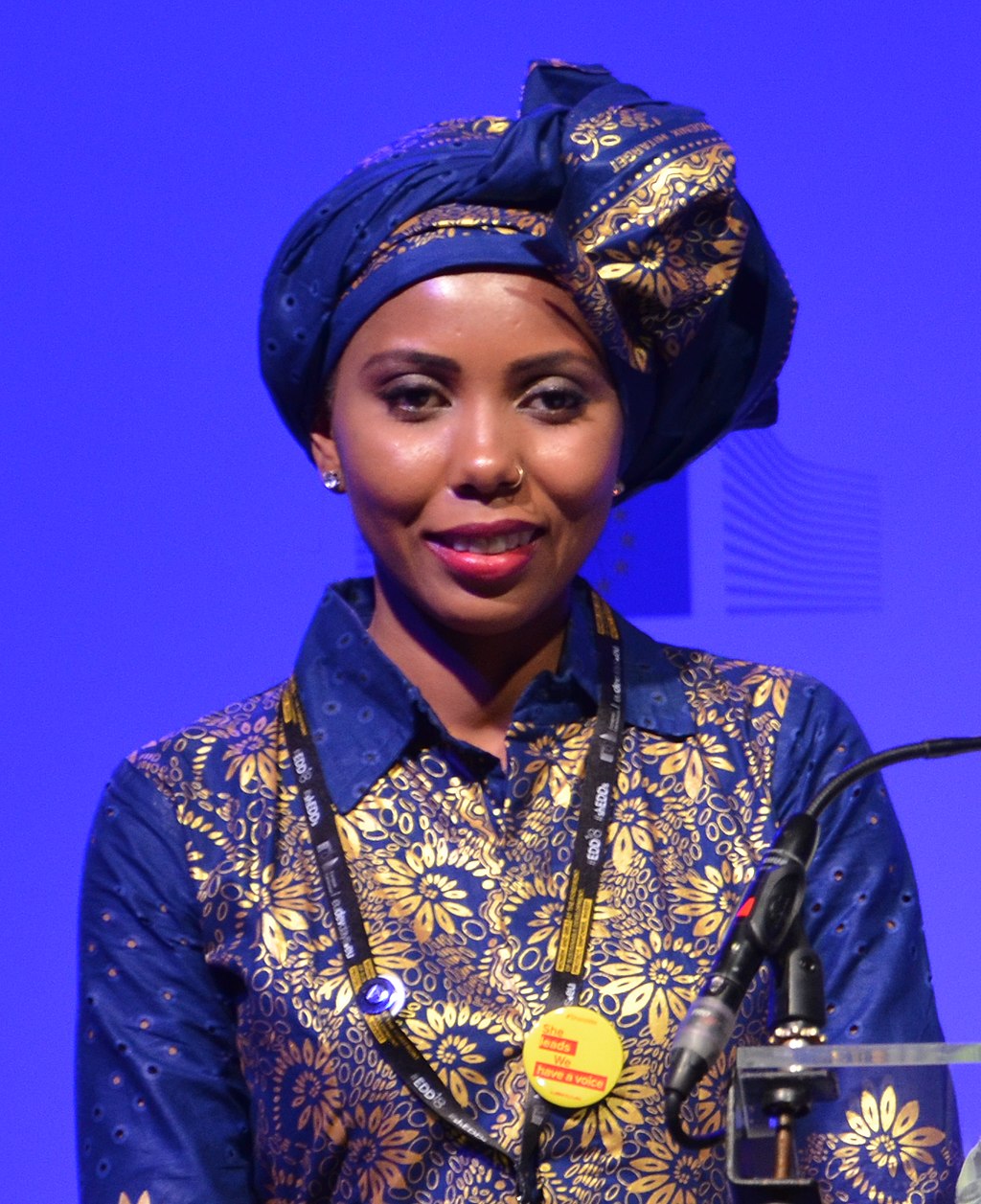By: Jaha Dukureh, a Gambian anti-female genital mutilation campaigner and the founder and executive director of Safe Hands for Girls. Jaha was named TIME Magazine's 100 Most Influential People for 2016 and was nominated for the Nobel Peace Prize in 2018.
After I spent years campaigning to outlaw female circumcision, finally my country started to listen. In 2015, The Gambia banned Female Genital Mutilation (FGM) and imposed penalties on those who perform or practice it. As a survivor of FGM who played an instrumental role in this fight, I felt ecstatic when I heard the news.
But it was a joy that wasn’t to last. If certain politicians have their way, the law will soon disappear and more young children will have to suffer the same pain I did. Some, like my half-sister, may lose their lives.
As a survivor of FGM born and raised in The Gambia, a Serahule, and a proud Muslim, my journey has been one of pain, resilience, and unwavering determination. I have learned that it is important to recognize my roots and the challenges that come from speaking up, especially if you are a woman and of my background. Today, as I reflect on the challenges that lie ahead, I am compelled to raise my voice in defense of the progress that has been made in protecting our daughters, our sisters, and future generations of women and girls.
I speak up for myself, for my generation, and for the millions of girls who will hear our story and say enough is enough. I will never perform this practice on my daughter. That statement, in itself, is the ultimate victory. And yet sadly, there are still many parents in The Gambia who are fighting for this practice to live on, ignoring our cries for it to end.
Still, we refuse to be silenced and stand idly by as our daughters' bodies are mutilated, their futures stolen, and their dreams shattered. That's why, as the world celebrated women's achievements during Women’s History Month in March, we launched a petition to stop the repeal of the ban on FGM in The Gambia.
But to be effective – to actually be heard – we need all of you to help tell our parents, “Enough is enough.”
Our campaign has given voices to many young girls who continue to unapologetically lead movements to help change social norms. But today, we also need to be honest with ourselves. As much as I am emotionally invested in the campaign, I have always recognized my limitations, especially when I decided to bring my campaign home. If you have the chance to watch Jaha’s Promise, you will understand what I am trying to explain. I was returning home to join a decades-long campaign to end this harmful practice, but it wasn’t easy.
As young people, we developed a whole society approach to eradicating the practice. This required us to organize but also to engage with those who had different views than us. Those Gambians for whom FGM is considered a sacred passage that women have to go through. Those fathers, like mine, who gave consent to the practice without understanding what we go through.
Like in many parts of Africa, FGM remains a deeply entrenched tradition in The Gambia, affecting a significant portion of the population. According to the United Nations Population Fund, 75 percent of women and girls aged 15-49 have undergone some form of FGM. This practice cuts across ethnic, religious, and cultural boundaries, affecting various communities nationwide. If lawmakers overturn the law now, the numbers will only increase.
The proposed repeal is not just a legal issue; it is a moral imperative, a test of our humanity, and a reflection of our values as a society. It sends a dangerous message that the rights and dignity of girls are expendable, that their bodies are mere vessels for the preservation of harmful traditions.
But we know better. We know that FGM is a violation of human rights, a form of violence against women and girls, and a practice that should end with us. That's why we are mobilizing, organizing, and uniting to raise the alarm for the rights of all girls to live free from fear and harm.
Our petition is more than just signatures on a page; it is a collective call to our parents to listen to the voice of reason and understand the harm that we go through. As a survivor, I know firsthand the pain and trauma inflicted by FGM. But I also know the power of resilience, the strength of solidarity, and the hope that springs from the darkest of places.
Join me – join all of us survivors – as we raise our voices, protect our girls, and say no to the repeal of the ban on FGM in The Gambia. Sign our petition, raise awareness, and stand in solidarity with survivors of FGM. Together, we can protect our girls and build a world where every woman and girl is empowered to live a life of dignity, freedom, and equality. We owe it to our daughters, our sisters, and ourselves to mobilize our communities and demand accountability from our leaders.
Our parents aren't listening to us — our politicians aren't listening to us — which is why we need your voice, too. With your help, our collective voices will be so loud they’ll be impossible to ignore.
#StopFGMRepealGambia #ProtectOurGirls #EndFGM
Jaha Dukureh, Founder & CEO of Safe Hands for Girls
Council member Nalafem Collective
The Gambia
Related links:
- Behind the Wall by Gambian activist and FGC survivor Isatou Jallow
- UNICEF released new data on global prevalence of FGM/C

